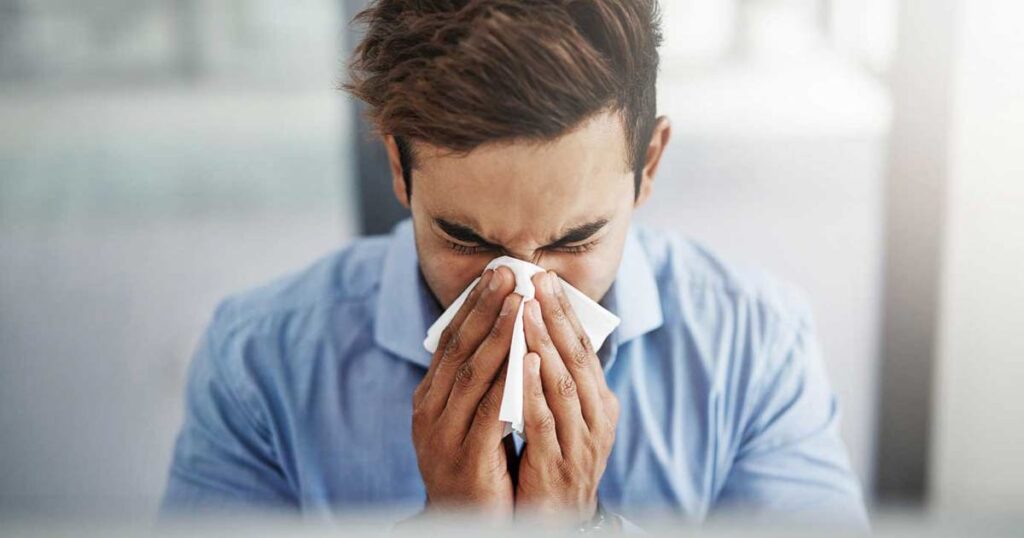14/12/2023
14/12/2023

LONDON, Dec 14: In a cautionary tale emphasizing the dangers of suppressing sneezes, a recent case report from the UK recounts the unprecedented injury suffered by a man in his 30s who tore his windpipe while attempting to stifle a sneeze. Documented in a paper published in BMJ Case Reports, this incident marks the first recorded instance of such an injury.
The man, with a history of hay fever, experienced the mishap while driving. Fearing the onset of a sneezing episode, he opted to hold his nose and close his mouth to contain it. Following this, he immediately experienced intense neck pain, leading him to seek emergency medical attention. Upon examination at the local emergency room, doctors discovered a swollen and stiff neck, prompting further investigation through CT and MRI scans.
The diagnostic tests unveiled a rare spontaneous tracheal perforation, a tear in the windpipe typically caused by physical trauma, surgical accidents, or intubation. This case is unique as it is the first documented instance of a tracheal perforation resulting from a held-in sneeze.
The authors of the report suspect that the injury occurred due to a rapid pressure build-up in the trachea during the stifled sneeze with a pinched nose and closed mouth. While severe tracheal perforations may necessitate urgent surgery, the man's relatively stable condition allowed for a more conservative approach. He received painkillers and allergy medication, underwent close observation in the hospital for two days (with restricted eating and drinking initially), and was later prescribed long-term allergy medication. Furthermore, he was advised against holding in sneezes. A follow-up after five weeks revealed complete healing of the tear.
Although this incident represents the first recorded case of windpipe injury from stifled sneezing, other serious complications linked to this practice include fractured ribs, ruptured eardrums, and burst blood vessels in the brain. While these injuries are exceedingly rare, medical professionals advocate against suppressing sneezes, emphasizing the absence of any real benefit from doing so. Instead, they recommend allowing sneezes to occur naturally. If concerns about spreading germs arise, sneezing into one's elbow away from others is a safe alternative. The doctors involved in the case concluded with a general advisory against stifling sneezes through nose-pinching and mouth closure to prevent potential tracheal perforation.


